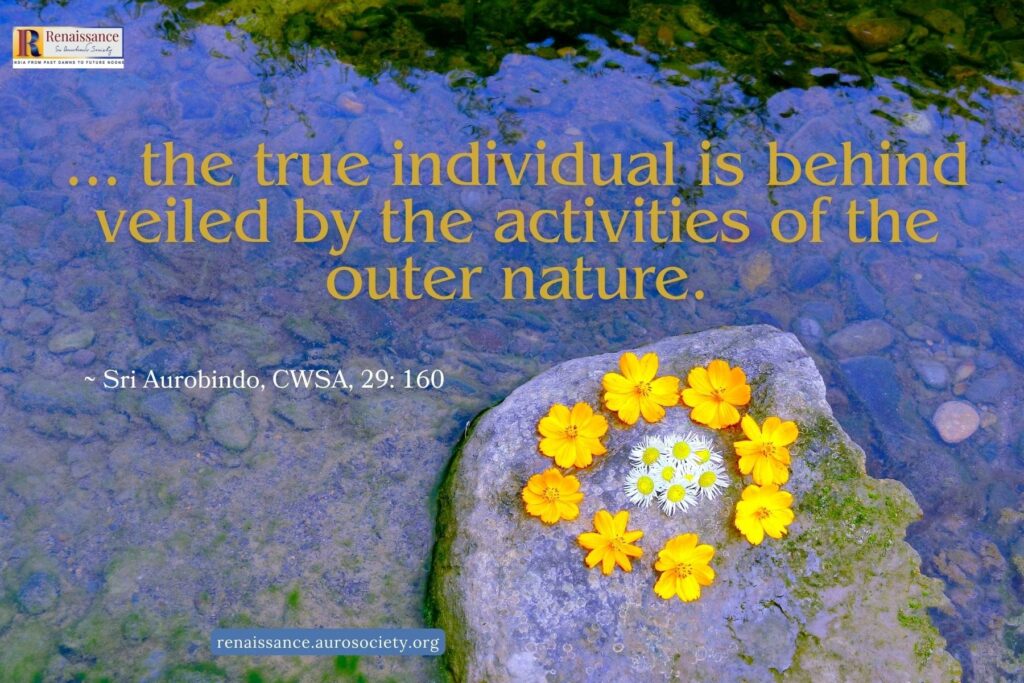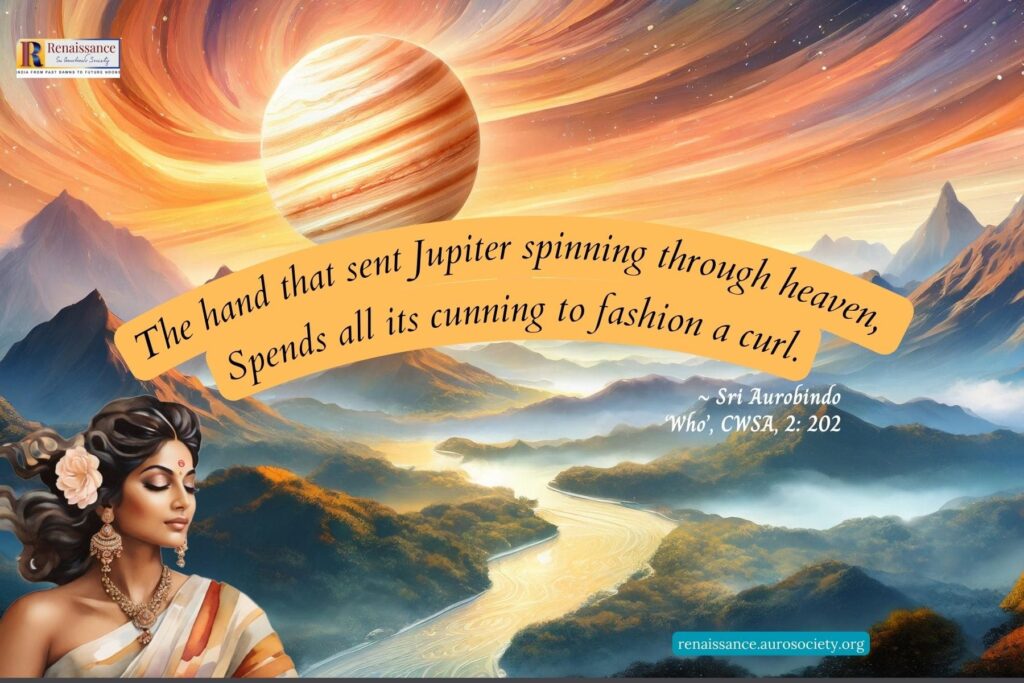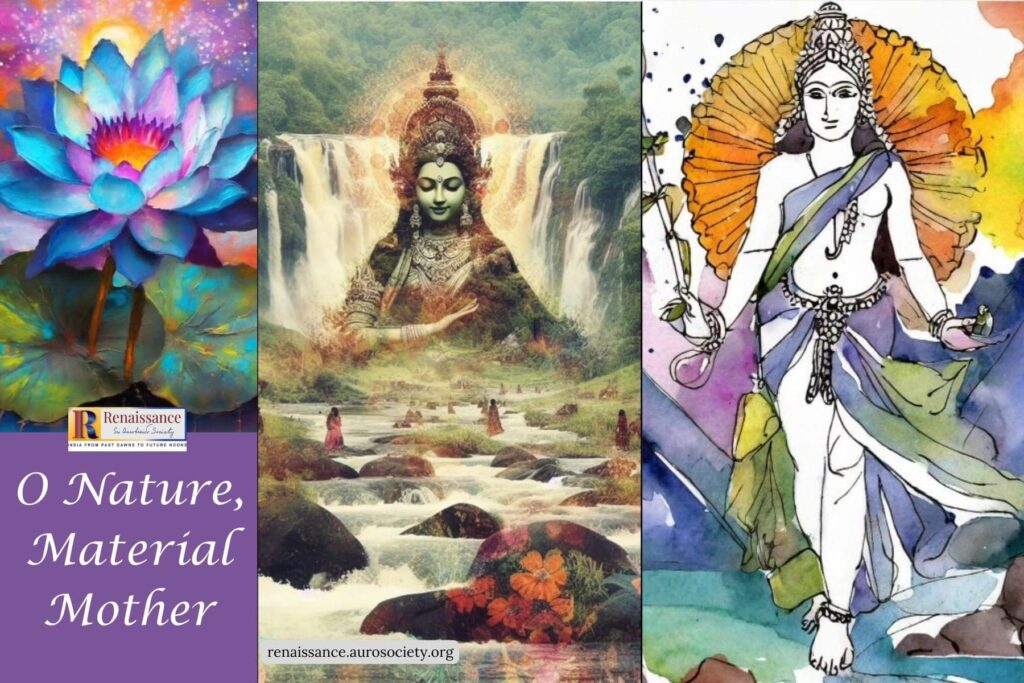In her essay on the Vital Education, the Mother writes:
As a sign, perhaps, of the decline of civilisation and social decay, a growing vulgarity seems to have taken possession of human life, individual as well as collective, particularly in what concerns aesthetic life and the life of the senses. A methodical and enlightened cultivation of the senses can, little by little, eliminate from the child whatever is by contagion vulgar, commonplace and crude.
This education will have very happy effects even on his character. For one who has developed a truly refined taste will, because of this very refinement, feel incapable of acting in a crude, brutal or vulgar manner. This refinement, if it is sincere, brings to the being a nobility and generosity which will spontaneously find expression in his behaviour and will protect him from many base and perverse movements.
~ The Mother, CWM, Vol. 12, p. 21
Arts Education
One of the ways to develop an aesthetic sensibility is through a well-conceived arts education. India has had a great tradition of all forms of visual and performing arts. And Indian thinkers and philosophers have written great volumes on aesthetics and aesthetic education. But over the centuries, all that was forgotten when framing our educational policies.
Arts education was slowly pushed out of schools and colleges. And where it still exists it is in the form of one or at the most two 40-minute period(s) in a week. National Education Policy 2020 gives some hope in correcting this situation. It stresses on better integration of arts in curriculum.
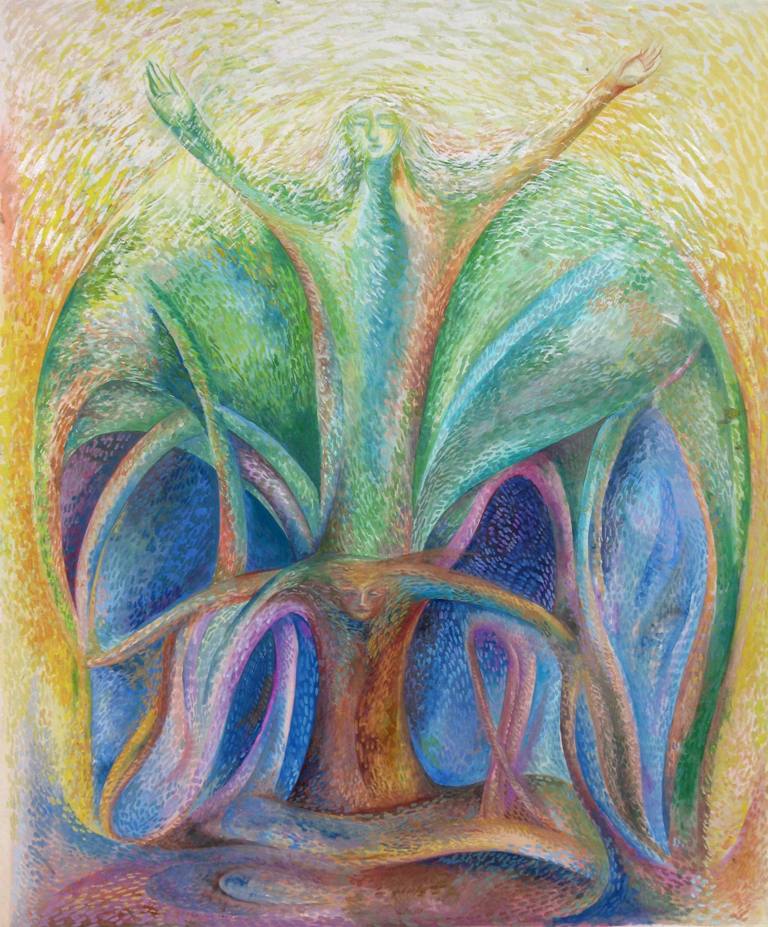
Sri Aurobindo’s profound essay-series titled National Value of Art provides valuable perspective on why arts education is absolutely essential for the overall well-integrated development of a learner.
(Tribute to Matrimandir, drawing by Bindu Popli)
The mind is profoundly influenced by what it sees and, if the eye is trained from the days of childhood to the contemplation and understanding of beauty, harmony and just arrangement in line and colour, the tastes, habits and character will be insensibly trained to follow a similar law of beauty, harmony and just arrangement in the life of the adult man. . .
Between them music, art and poetry are a perfect education for the soul; they make and keep its movements purified, self-controlled, deep and harmonious. . . They are, when properly used, great educating, edifying and civilising forces.
~ Sri Aurobindo, CWSA, Vol. 1, pp. 447-448
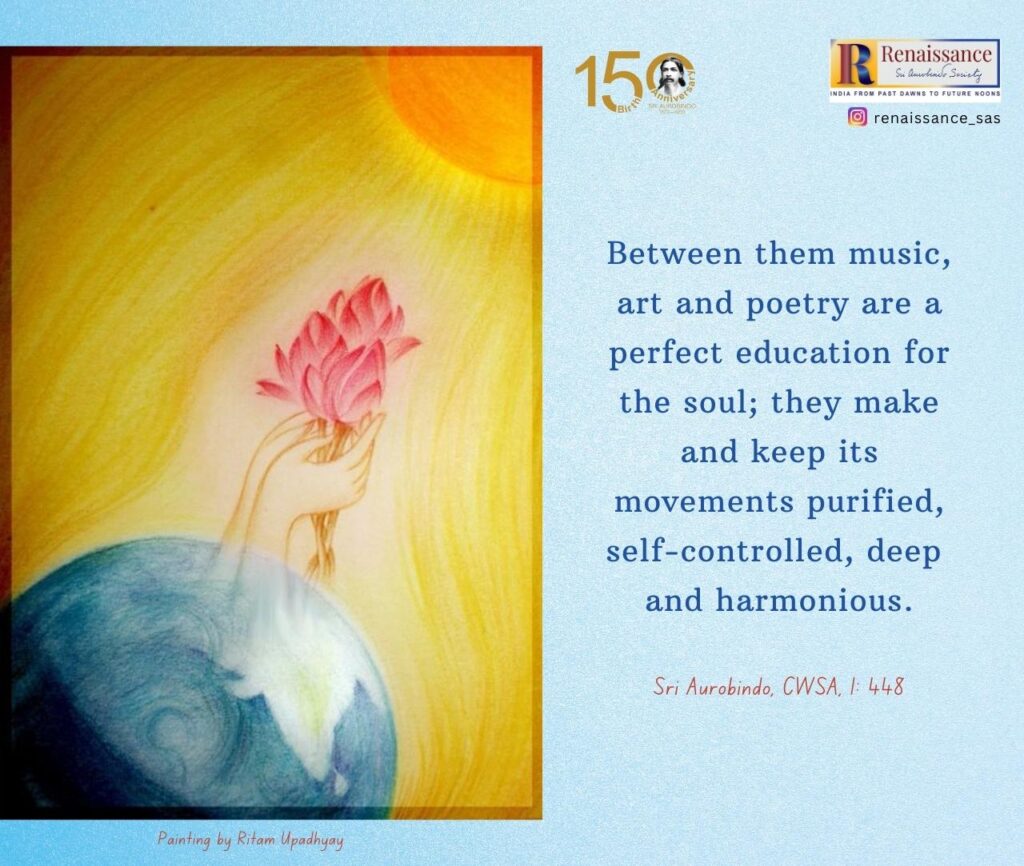
Arts education encourages learners to develop a keener sense of observation of all that is around them and also within them. It helps improve perception by a thorough training and refinement of the sense-organs including mind. In time, this can lead to greater refinement and self-control of emotions and feelings, eventually helping them grow more reflective and introspective.
Arts education is essential if we want our youth to grow up to become sensitive and kind human beings. It can help them become conscious of the mystery and wonder that surrounds them in nature and in human-made world, and compassionate toward all life and nature.
Arts education also helps train the intellectual faculty in several important ways. It makes the mind quick to grasp at a glance and trains it to distinguish subtleties. It opens it to intuition and inspiration. By raising images in the mind which an art student has to understand not by analysis, but by self-identification with other minds, it helps build sympathetic insight.
An Art Educator Shares Her Perspective
This and many other insights were shared by our guest, Ms. Bindu Popli, for this session of Insightful Conversations. An artist and art educator, she shares with us some of what she has learned through her long experience. She speaks of the role of arts in helping learners develop a greater sense of harmony and inner balance.
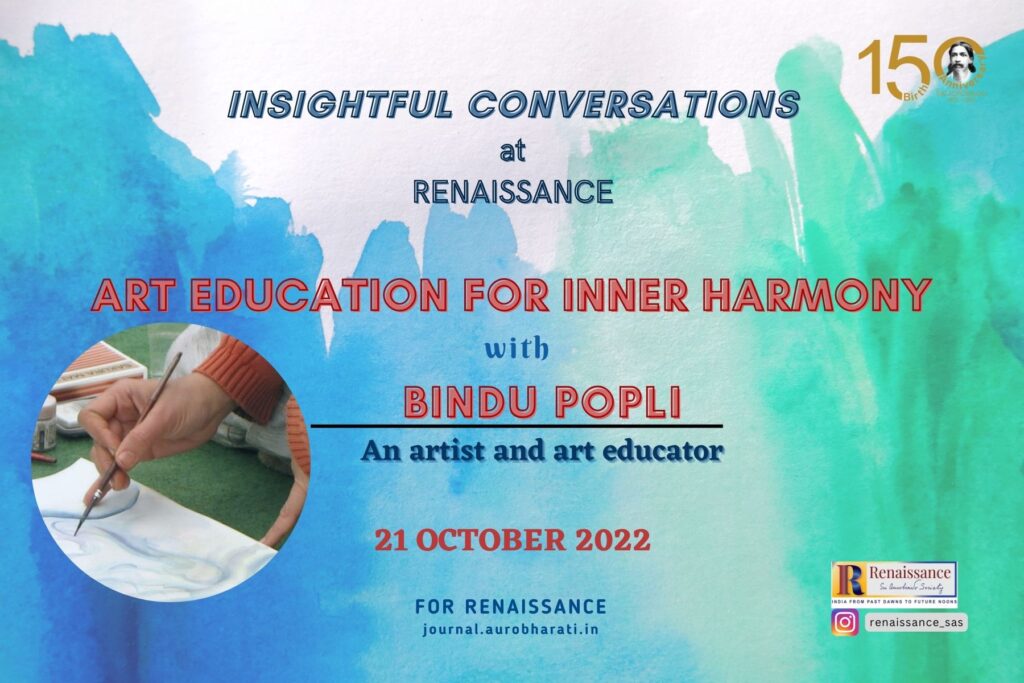
Sri Aurobindo reminds us that there is a universal impulse to enjoy the beauty and attractiveness of sound, to look at and live among pictures, colours, forms. When denied proper training and self-purification, this spends itself on the trivial, gaudy, sensuous, cheap or vulgar. This is why in the majority of mankind, the artistic impulses are condemned to the low and debased level of enjoyment.
A meaningful arts education is essential for a general diffusion of a broad-based human culture. The object is not to make every individual into an artist. But the goal rather is to give every individual an opportunity to develop his or her artistic faculty. It is necessary to train an individual’s sense of beauty, and help him develop sensitivity toward form and colour.
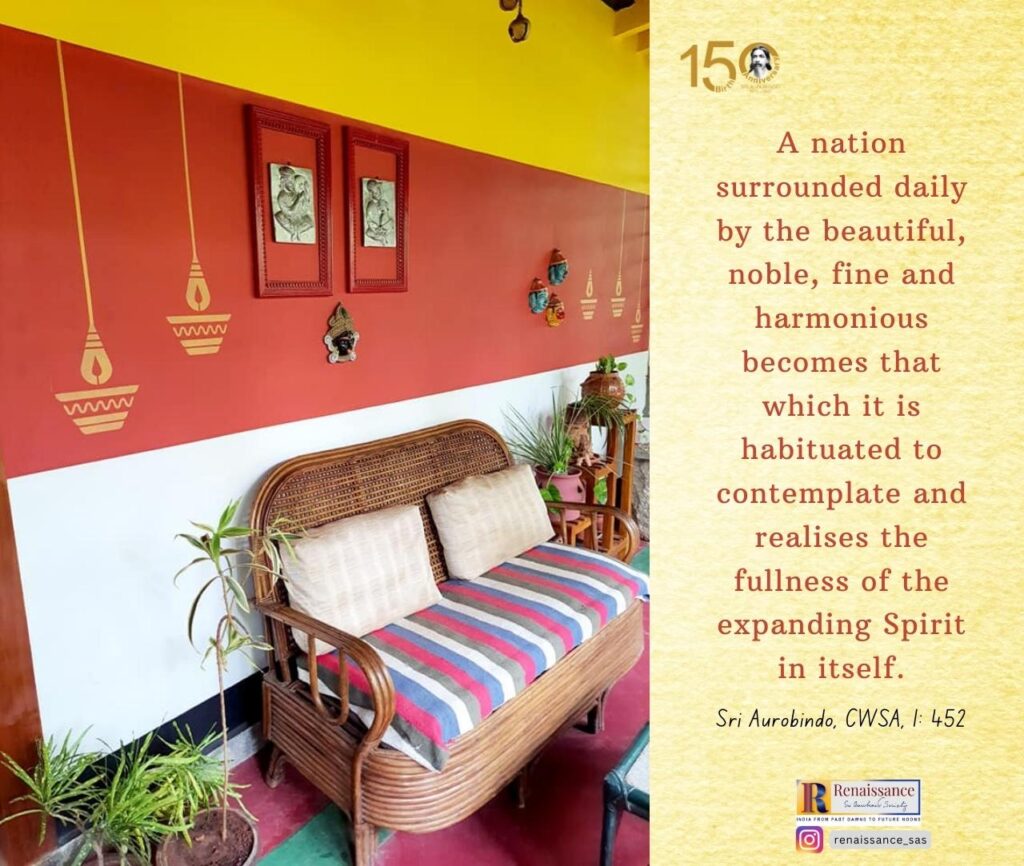
About our guest:
Bindu Popli was our guest for a previous session of Insightful Conversation titled ‘Antaryatra: An Artist’s Journey Within.’ (See HERE). She is a graduate from Delhi College of Art, where she received several prestigious awards and scholarships. A recipient of M. F. Hussain gold medal and also of National Scholarship from Ministry of Human Resources, she has also trained with artists of great acclaim. Her work has been shown in several solo and joint exhibitions, where it received high reviews and acclaim.
Watch the Video:
~ Design: Beloo Mehra

